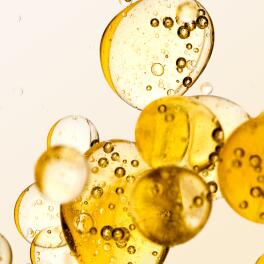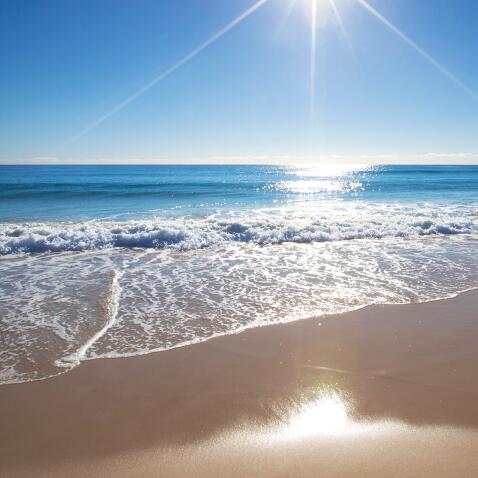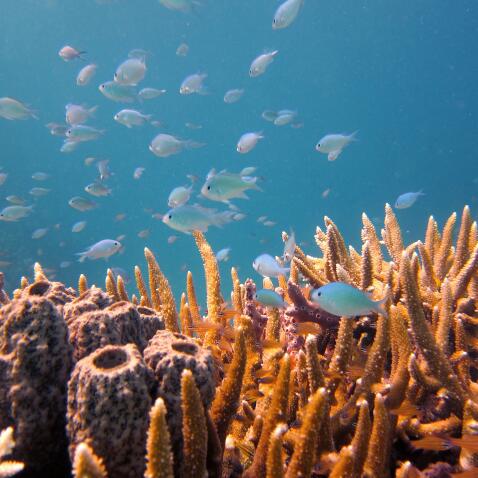Sun Care - Sensitive Skin
SPF 50+ Fluid
100% photostable* Water-resistant Formulated to limit its impact on marine ecosystems** Non-comedogenic



Very high sun protection SPF50+ for sensitive, normal to combination skin on the face. A new patented sun filter for high protection and more respect for the environment.
- Photo-protector
- Anti-oxidant
- Dry touch
- Fragrance
-
Ultra-broad spectrum protection
Patented TriAsorB™ filter : the first Pierre Fabre Organic Filter that protects against blue light, beyond UVs. -
100% photostable*
Water-resistant
Formulated to limit its impact on marine ecosystems**
Non-comedogenic
Usable by Adults
Phototype All phototypes from I to VI
Skin type Normal skin - Combination skin - Sensitive skin
Need Photo-protection
Made in France
The SPF 50+ Fluid offers ultra-broad spectrum daily sun protection. It’s ideal for normal sensitive to combination skin on the face. Its light texture allows absorption in 3 seconds* and leaves an invisible finish on the skin. The SPF 50+ Fluid leaves an imperceptible, non-shiny finish on the skin when applied and is an excellent base for everyday make-up. The formula is also water resistant.
This new sun care product incorporates TriAsorB ™, a new ultra-broad spectrum sun filter that protects against UV rays and beyond with protection from skin-ageing HEV blue light, up to 450nm.
A highly secure filtering system, it also helps to ensure greater respect for marine biodiversity. Numerous tests under experimental conditions have proven, among other things, that it is non-toxic to three key species of marine biodiversity: coral, phytoplankton, and zooplankton***.
Its new eco-designed bottle is lighter in plastic, recyclable and contains 64% recycled plastic (excluding the cap), and is therefore fully in line with Pierre Fabre Dermo-Cosmetics' reasoned and ethical approach.
*Sensory profile, 15 trained subjects, single application
***Tests carried out on representative species by the Observatoire Océanologique de Banyuls-sur-Mer
Benefits
• PHOTOPROTECTIVE : Photostable UVB-UVA and blue light filters that combat the deleterious effects of sun rays. -95% cell damage induced by solar radiation*.
• ANTIOXIDANT : Helps to protect cells against free radicals**.
• WATER-RESISTANT : Protects the skin from the harmful effects of the sun even when swimming.
• DRY TOUCH : Leaves an invisible, non-sticky finish on the skin and penetrates in 3 seconds***.
• IMPERCEPTIBLE : For a natural complexion and invisible protection every day. Use as a day cream.
• FORMULATED to limit its impact on marine ecosystems****.
*Sensory profile, 15 trained subjects, single application
**In-vitro test on reconstructed skin exposed to blue light
***Tests carried out on representative species by the Observatoire Océanologique de Banyuls-sur-Mer.
*In-vitro test on reconstructed epidermis exposed to blue light - Quantification of DNA oxidation
**More information on www.eau-thermale-avene.com
***Descriptive sensory analysis by 15 panellists trained in sensory analysis of topical products
****Non-eco-toxic filters, with no impact on 3 representative species of marine biodiversity (one species of coral, one species of phytoplankton and one of zooplankton) according to tests carried out by the Oceanological Observatory of Banyuls-sur-Mer, partner of the European Marine Biological Resource Center, at concentrations representative of those found in the environment for sunscreens; and formulas optimized to promote their biodegradability according to the OECD 301b test.
Environmental impact
Formula
Biodegradable formula*
Packaging
Packaging containing at least 14% recycled materials*
Fully recyclable packaging**
*Excluded outer packaging
**excluded outer packaging
Manufacturing
Formulated with one or more raw materials from the circular economy
Made and conditioned in a factory certified for the environment*
*According to ISO 14001 standard and/or 50001
Transportation
Product manufactured and packaged on the same site
Societal impact
Societal impact
Product manufactured and packaged in a French factory with demanding social standards
Eau Thermale Avène is a brand of the Pierre Fabre Laboratories, certified at the highest Exemplary level of AFNOR Certification’'s Committed to CSR and Responsibility Europe labels, thus consolidating a long-standing commitment to contributing to sustainable development.
Product contains no animal-derived ingredients or derivatives
Which skin care routine should you adopt?
Identify what it really needs with the help of our experts and discover the most suitable skin care routine for you.





























